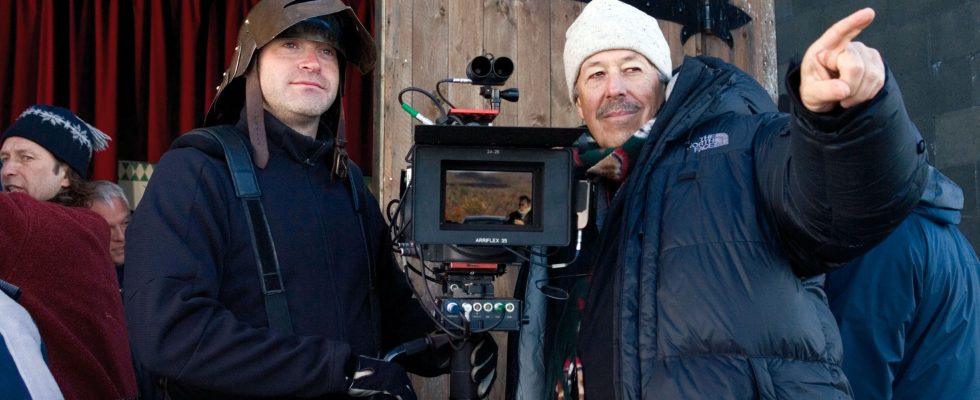The place of Quebec in the collective imagination of the French, it would be very interesting to study… ch’ais po feire. Waiting The plungernot only because its director, Francis Leclerc, is Félix’s son, but because he responds to the Will, by Denys Arcand. But if, remember, it was the one who announced The Decline of the American Empire, in 1986, we all loved it. It was followed by the no less hilarious Barbarian invasions, in 2003. Are you there? You also remember that he really disappointed us with The Fall of the American Empire, in 2018, which, contrary to what the title announced, had nothing to do with the brilliant social satire of the previous two. As a punchline, it was rather the triumph of the American cinematographic empire that Denys Arcand applied with this film which threaded the clichés of the genre: the stuck-up little employee who finds himself by chance at the head of a large fortune in banknotes abandoned by gangsters, falls in love with the first luxury whore he can finally afford, who puts him in contact with one of his former clients, a cynical banker champion of large-scale tax evasion, in short, everything was there, quite distressing.
Covid-19 seems to have provided renewed inspiration to our 82-year-old Quebecer. Her Willmore in tune with the subtle mix of autobiography and social chronicle on which he built his notoriety, is entirely worthy of concluding in a triptych the delightful satire initiated with his Decline and his Invasions. You just had to wait.
As in The Invasions, it is about death. His hero semi-retires as a civil servant at the National Archives in a very comfortable establishment run by a harpy secretly in love with him. An end of life all the more mediocre and without passion for this Jean-Claude Bouchard as he experienced a bit of notoriety at the time of the release of his book, which has now fallen into oblivion which seems definitive.
Suddenly, a group of young defenders of the Inuit cause arrives. These activists (I like to give points to words that I don’t like) heard about a mural created in the music room of the institution and which, according to them, would constitute (well done !) an insult to the memory of the First Nations. The fresco dates from the 19th century, it is signed Jean-Joseph d’Aubigny, who has nothing to do with our own Daubigny, but nonetheless remains one of the greatest Quebec painters, according to the screenwriters. This monumental fresco represents the meeting which took place on October 3, 1535 in Hochelaga (now Montreal) between an Iroquois chief (anonymous and almost naked, as it should be) and the famous Jacques Cartier, dressed as a Breton explorer. The young revolutionaries in ZAD mode on the lawn of the retirement home demand the destruction of the work.
The fact that there are no Indian descendants among them does not pose a problem to them. Shame on them. We then think back to the magnificent tracking shot of Barbarian invasions where Arcand paraded the lousy isms of the Trente Glorieuses québécoises: “We were separatists, separatists, then we read Marcuse so we became Marxists, Trotskyist-Leninists […] then we read Solzhenitsyn and we became structuralists […] feminists, deconstructionists… Is there an ism that we have not adored?” To this litany of misdirection, through the voice of his hero, Denys Arcand adds wokism as a codicil of his Will.
With always the same moral: “Because he had seen the films of Jean-Luc Godard and read the books of Philippe Sollers, he found that the Chinese cultural revolution was very credible… It was cretinism, old man, we can’t go any lower.”
Go see Will to find out if Wokism can go even lower than Maoism.
Christophe Donner is a writer
